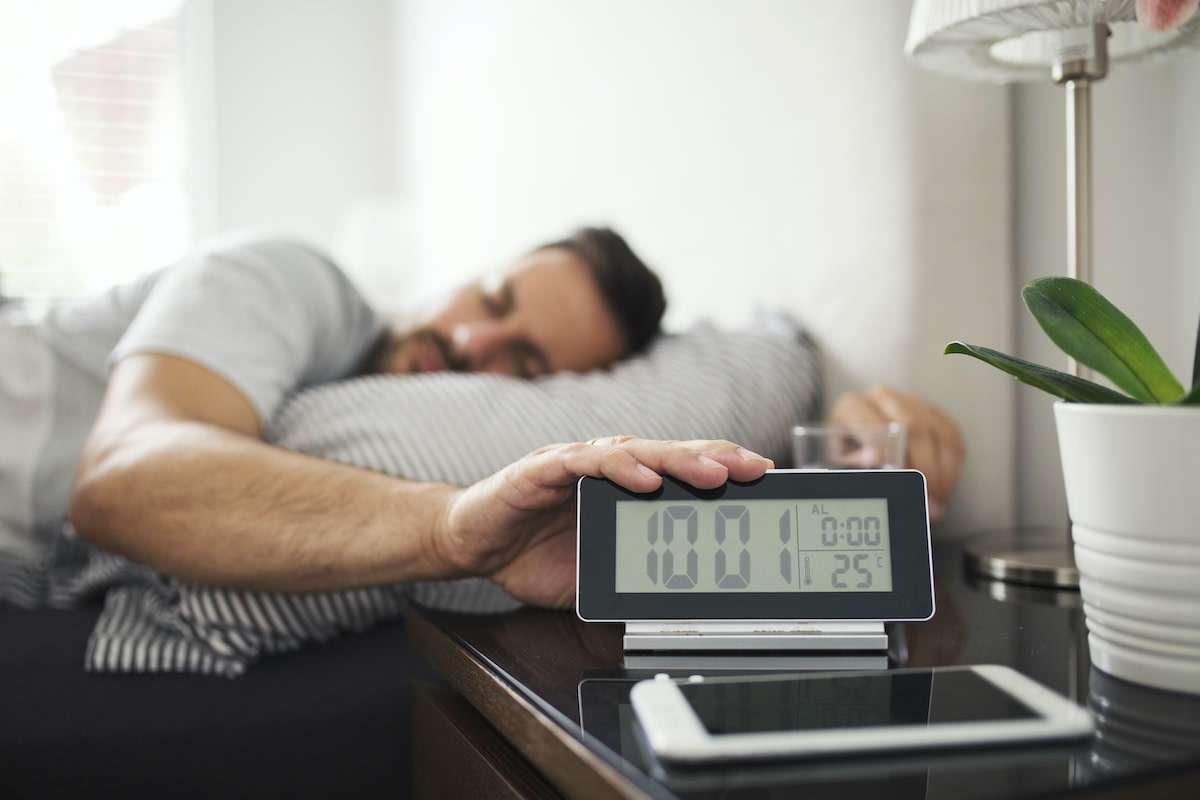How to Stop Oversleeping: 5 Tips for Improving Sleep Hygiene
Written by MasterClass
Last updated: Feb 24, 2022 • 4 min read
If you are a long sleeper or feel that you are sleeping too much, you can take steps to get back into a healthy sleep cycle. Learn how to stop oversleeping and establish a healthy sleep schedule based on your sleep needs.
Learn From the Best
What Is Oversleeping?
Oversleeping, also known as long sleeping or hypersomnia, is when your sleep duration exceeds the daily recommended amount of sleep. Oversleepers may be experiencing low sleep quality or getting poor sleep that leads to staying in bed longer. Understanding how much sleep you need on a daily basis can help you establish a healthy sleep schedule.
What Causes Oversleeping?
While there are many causes of oversleeping, a few possible factors include:
- Eating habits or lifestyle: Your overall wellness and diet may be contributing to your body’s need for more sleep time every day. For example, drinking too much caffeine can affect your sleep patterns or disrupt your sleep cycle, and using gadgets or looking at screens with blue light before bed could affect your night’s sleep.
- Medical conditions: Many health conditions can cause the body to require more sleep, including conditions like diabetes and heart disease. Additionally, many sleep disorders, such as sleep apnea or narcolepsy, can cause you to become sleep-deprived and require more sleep.
- Sleep deprivation: If you experience a lack of sleep—for example, if you miss sleep the night before or pull an all-nighter—your body may be trying to catch up on sleep by causing you to oversleep. Learn how to fix your sleep schedule and get consistent sleep.
Recommended Hours of Sleep by Age
Good sleeping habits are essential for all age groups, but the quantity of sleep you need varies by age. The Center for Disease Control and Prevention (CDC) publishes a recommended amount of sleep for healthy adults and children within each age range. Use the following ranges to determine your daily sleep time:
- Newborns (0–3 months old): 14–17 hours of sleep per day
- Infants (4–12 months old): 12–16 hours of sleep per day
- Toddlers (1–2 years old): 11–14 hours of sleep per day
- Preschool children (3–5 years old): 10–13 hours of sleep per day
- School-age children (6–12 years old): 9–12 hours of sleep per day
- Teenagers (13–18 years old): 8–10 hours of sleep per day
- Adults (18–64 years old): 7–9 hours of sleep per day
- Older adults (65 years old and older): 7–8 hours of sleep per day
Depending on your unique circumstances, an hour more or less than the recommended range might be preferable. In addition, pregnant people in their first trimester may feel drowsy due to hormone changes and require a few extra hours of sleep per day.
How to Stop Oversleeping
Consider talking to a doctor or healthcare professional about potential health issues that may contribute to your sleep problems. The following tips can help you get the right amount of shut-eye each night:
- Avoid hitting the snoozing button. It can be easy to snooze your alarm in the morning when you feel like you still need sleep, but if you’re on a healthy sleep schedule with a set wake time, you should be ready to wake up when your alarm clock goes off. Find an alarm clock without a snooze button, or try putting the device out of reach so that you have to get out of bed to turn it off.
- Avoid napping during the day. It may be tempting to take a nap to fend off daytime sleepiness, but napping during the day can throw off your sleep schedule and make it harder to fall asleep at night.
- Create a comfortable sleep environment. Consider purchasing earplugs or blackout curtains to help you get a good night’s sleep. Making small changes to your sleep environment can help you wake up refreshed and well-rested the next day.
- Establish a sleeping schedule. A crucial step to avoid oversleeping is to decide when to go to bed and wake up. Sticking to a sleep routine helps ensure you get the right amount of sleep each night and achieve a healthy circadian rhythm for better sleep. As part of your sleep schedule, decide how you will fight off excessive daytime sleepiness. Consider lifestyle factors, like your daily activity level, which may affect how much sleep you need.
- Reward yourself for getting up on time. Making your morning routine satisfying and rewarding will make you more eager to wake up on time. Consider preparing a healthy breakfast or scheduling a short morning walk to reward yourself for adhering to your sleep schedule.
Want to Learn More About Catching Those Elusive Zs?
Saw some of the best darn logs of your life with a MasterClass Annual Membership and exclusive instructional videos from Dr. Matthew Walker, the author of Why We Sleep and the founder-director of the Center for Human Sleep Science at the University of California, Berkeley. Between Matthew’s tips for optimal snoozing and info on discovering your body’s ideal rhythms, you’ll be sleeping more deeply in no time.
